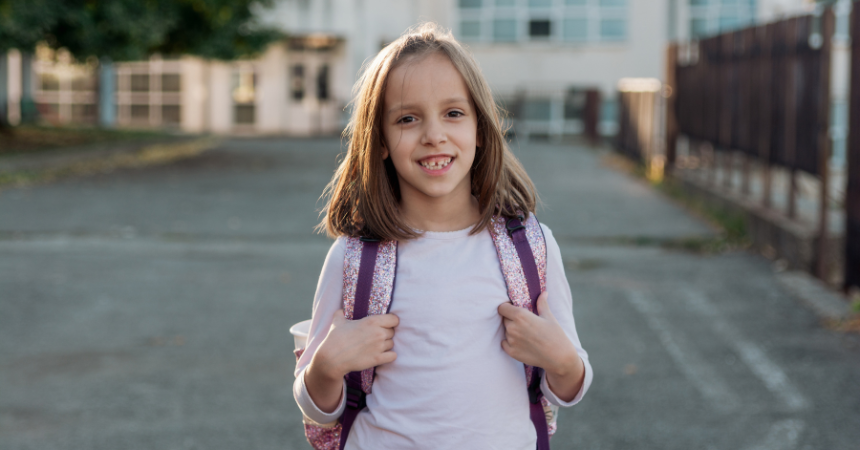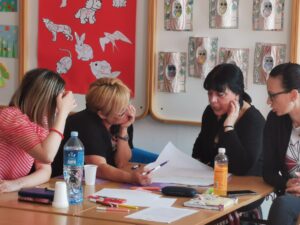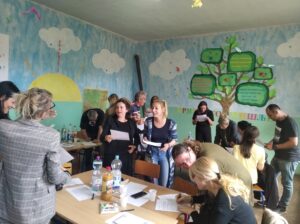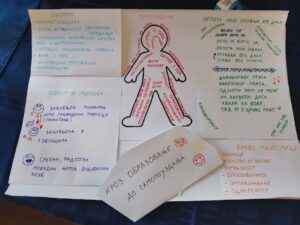New School Year Means New Opportunities for Social-Emotional Character Development in Serbia


The school year has begun for many students and educators around the world, and we at Childhood Education International wish everyone a healthy, safe, and productive year.
As students gear up for more learning, educators are building their capacities and setting up the environment for all to succeed. Educators provide growth in all areas of students’ lives – not just academically, but socially, emotionally, and psychologically.

Educators discuss the social-emotional competencies they help support in their classrooms during a training in Niš, Serbia.
CE International has been working with educators in Serbia to support their own growth and well-being, and the growth and well-being of their students.
Partnering with the Center for Interactive Pedagogy (CIP) in Serbia and with support from the John Templeton Foundation, we have been designing and implementing a series of trainings through the program “Social and Emotional Character Development (SECD) in Serbian Primary Schools: A Community of Practice Framework.” The training series was developed through evidence-based practice and research on what works best to build school capacities in SECD.
Throughout this program, trainings have been conducted across five schools in Serbia since January, and educators are building a stronger understanding of social-emotional learning components, including how to address their own well-being and ways they can incorporate self-awareness, self-regulation, relationship skills, and critical thinking into the school curriculum.
By taking the time to build their own capacities, educators are creating a stronger, more supportive school environment that can help students address issues such as social exclusion and violence, build their sense of character, and strive to their full potential.

Educators in Turija, Serbia, consider different social-emotional character development activities for their classrooms
Since the start of the project, more than 160 educators in Serbia have engaged in the hybrid trainings with CE International and CIP, meeting online and in-person at schools.
Teachers have noted how important and practical it is for them to learn how to apply SECD – also known as social-emotional learning – in the classroom. One teacher reported, “[The trainers] helped us see ourselves and our children more realistically… I am convinced that the skills acquired here can really change people for the better.”
We are honored that the first three modules of the training series were recently approved and accredited by the Serbia Ministry of Education, which has identified SECD in schools as an issue of national importance. We hope this will enable the professional development resources to reach more educators, building capacity to provide social-emotional learning in more schools.

A poster created by educators during a group activity in which they considered ways to cope with stress, self-regulate, and be self-aware
This fall, the project will support educators in establishing communities of practice within and across schools and embedding more SECD activities and approaches into the curriculum and after-school programs.
Students will also be assessed so that educators can gain a baseline measurement of their social-emotional competencies, which will be used to identify areas of growth as the students strengthen their competencies and engage in overall character building. We look forward to sharing more updates on this program in the future.